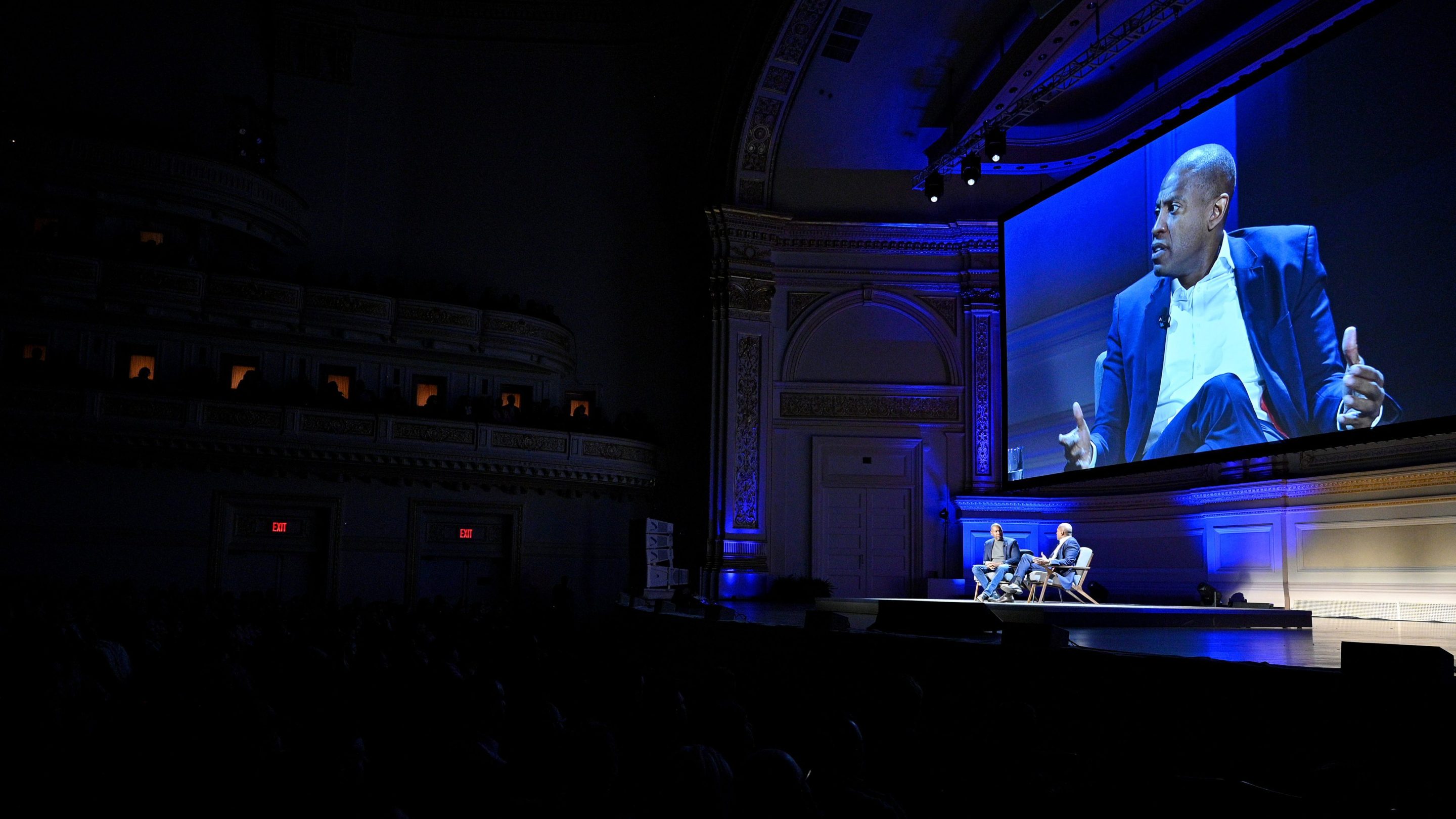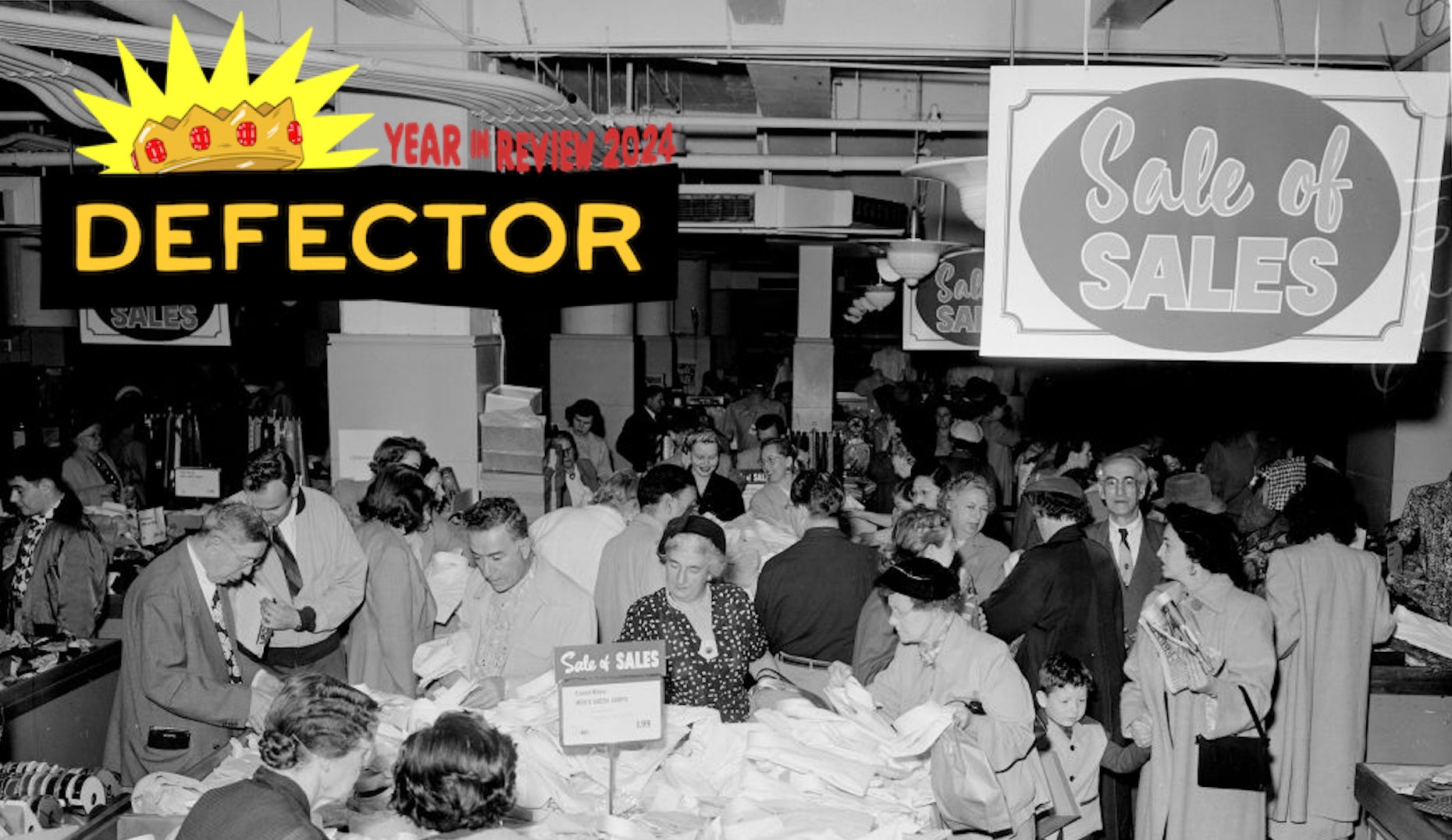"There are like 50,000 shades of grey when you’re talking about the differences between being a visionary or fraud," says NYU marketing professor Scott Galloway in this roundly embarrassing interview with New York magazine's James Walsh. I guess I just sorta gave the game away, there.
The prompt for Galloway (who I'm told is "like a Shingy type guy" who "has a podcast with Kara Swisher" and a "weird porny trailer for his Bloomberg show") is Ozy, if you hadn't guessed. The previously obscure digital media company has been in extremely public meltdown over the past few weeks as reporting, first by Ben Smith of the New York Times and then by many others, has revealed it to be pretty much entirely a collection of bizarre, interlinked, and shabby scams. Ozy reportedly engaged, at industrial scale if not with any evident competence, in depressingly mundane forms of digital-media skulduggery, like buying bot traffic and social-media followers to attract advertisers; it also, and more obviously criminally, got busted with one of its executives impersonating a YouTube executive on a conference call with potential investors. On a more fundamental level, there's the essential swindle, familiar to basically anyone who has worked in basically any industry in the United States in the 21st century, that was the nature of the company's very existence. That scam is the gap between the company's nominal mission—in Ozy's case, some baloney about, like, shining the light of journalism on the world of tomorrow or whatever—and its actual one, which is to make its executives and board members very rich, with next to no regard for whether the effort produced anything of value for anyone else along the way.
More broadly, Galloway is talking about the suite of varyingly shady "fake it till you make it" practices that now define a certain model of startup business—the kind funded by venture capitalist investment. You're likely familiar with this type of thing by now, probably more than you'd like to be: founders and executives making wild, false claims about their companies and their products as a means of attracting investor money, gambling that the infusion of cash will enable them to realize those claims before anybody notices that they were bullshit.
In that respect Galloway is also talking about notorious blood-testing company Theranos, which sopped up billions of dollars in investment and scored lucrative blood-testing contracts by hiding the fact that its proprietary technology didn't work, and whose founder, Elizabeth Holmes, now faces a possible lengthy prison term for wire fraud. And he's talking about WeWork, the commercial real estate company flimsily disguised as some kind of cultural co-working revolution, which collapsed from a multibillion-dollar valuation to nothing on the doorstep of its initial public stock offering when, for the first time in its existence, anybody spent half a second thinking about what its actual business was (buying lots and lots of the most expensive commercial square-footage on earth with investor money and then renting it out for not nearly enough money to turn a profit, ever). Galloway's framing is: There are frauds and there are successes, and what defines the former is simply that their schemes faced exposure and collapsed while in their transit of those "50,000 shades of grey," before they could reach the far side and become the latter.
That's right, up to a point. As Galloway rightly observes, Elon Musk and Jeff Bezos could have met with ignominy and maybe even prison time, and their companies with doom, had their hype and shady accounting practices faced more critical media coverage earlier in their growth, before—well, before what, exactly? Galloway seems to think what happened to Musk's companies and to Amazon is that they survived long enough to vindicate their leaders: "Sometimes the line between vision and alleged fraud," he says, "is getting your next round of capital." In this framing, what makes Elizabeth Holmes or WeWork's Adam Neumann or Ozy's Carlos Watson and Samir Rao frauds isn't that they, you know, did fraud, but rather that they didn't do it successfully enough to attain critical mass:
"Conversely, if Elizabeth Holmes had managed to raise another $500 million, and Theranos had shown some progress with the Edison [the company’s blood-testing machine], I wonder if she would’ve given the commencement address at Stanford last spring."
Scott Galloway, NYMag
"And," you may have noticed, is doing a lot of work in that block quote, implying any kind of direct relationship between the sentence's first half and everything after it. What undid Holmes isn't that Theranos ran out of VC money, and thus had to abandon its noble work of revolutionizing phlebotomy. What undid her is that she and her company were doing fraudulent shit—secretly using competitors' equipment and crediting the results to their junk machine, passing along inaccurate and misleading blood test results to lab patients, lying and lying and lying, telling big prodigious lies about their work and about what they knew about what it could do and what it wouldn't ever do—and the Wall Street Journal's John Carreyrou exposed them. If Theranos had eluded that exposure long enough for its garbage Edison machine to have become a stable presence in the minute-clinics at friggin' Target—for Holmes to reach the "make it" part of the "fake it till you make it" formulation—that would not be a vindication for Elizabeth Holmes's vision of anything other than vast personal enrichment. It would be an indictment of the societal organs—the adversarial press, the Food and Drug Administration—responsible for acting as barriers between shameless frauds and unsuspecting laypersons who need to find out whether they have HIV or not.
That is to say: What does it mean to "make it"? Let's back up and examine Galloway's examples of companies and CEOs that landed on the safe side of that supposed murky swamp separating frauds and visionaries. Musk's companies are infamous for their chronic overpromising and underdelivering; none of them, to this point, have delivered anything more stable than making Elon Musk, the dull born-rich moral dwarf who buys existing technology companies for a vocation, endlessly rich. Broke municipalities grovel at his feet for harebrained, doomed-to-fail vanity transit projects because he has the money to hire people and almost nobody else does. Amazon's flourishing, meanwhile, has been a catastrophe of existential proportions for the brick-and-mortar retail industry, destroying countless small- and medium-sized businesses and replacing the jobs they once offered with brutal, dehumanizing work in its hellish warehouses. It has used the proceeds of that project to buy vast control over the infrastructure of the internet itself, and has plans to bring its vicious, anti-human model into healthcare next. But at least Jeff Bezos can afford to take a trip to the edge of space.
I suppose I won't dispute that these men have, in meaningful ways, made it. I feel reasonably confident, anyway, guessing that neither of them will face even the remote threat of imprisonment on fraud charges at any time in the rest of their lives. So ... what, then? The verdict on whether these men, monsters of Bond-villain proportions, are frauds, or ever did fraud, is rendered by ... what?
Musk's electric car company and tunneling company and solar panel company have not ushered in some sustainable green future, and will not; if they ever did, that would be, at best, an accident, a happy byproduct of Musk's central pursuit, which is his own continual endless enrichment and empowerment. Amazon, for its part, is straightforwardly malevolent, openly anti-human in its purposes and methods. To whom—to what—are you deferring when you accept that this arrangement validates Musk's and Bezos's navigation of murky ethical waters? All that ever happened is they got rich enough to reverse gravity, so that earth clings to them rather than the other way around. Is this prosperity gospel?
Galloway is not the only commentator recently engaged in performative grappling with the supposed ethical ambiguity of "fake it till you make it." Ben Smith pronounces himself "sympathetic to people like Mr. Watson and Ms. Holmes—strivers whose dreams apparently led them into deception"; in a different section, the Times interviewed a whole other vaguely Shingy business guy to think TEDly about the issue.
In start-ups you’ve invested in, or in your own companies, are there examples where testing something that doesn’t exist or painting a vision that you haven’t achieved was an OK and necessary thing to do?It’s hard to pick a specific example because in every start-up, that’s intrinsic to the job. Again, it’s not about deception. It’s about the fact that you’re talking about the future and the future is always uncertain.
Some guy named Eric Ries, talking to the New York Times
Along those lines, here's another paragraph from Galloway:
Visionaries have to have some—and I know this is a strong word—sociopathic tendencies. They have to be able to make statements that are so outlandish and then go to sleep at night and not worry that they’re basically committing fraud. They have to captivate the markets. It used to be that CEOs would underpromise and overdeliver. That has switched in the last 20 years. Now, you have to over-promise and under-deliver while you raise a ton of capital. The difference between a visionary and a fraud isn’t even a blurry line, it’s a blurry house of mirrors.
Scott Galloway, NYMag
I want to know what "have to" means, in that paragraph. Visionaries "have to" have some sociopathic tendencies. They "have to" boast and lie and not lose sleep over it. They "have to" overpromise and underdeliver. Have to ... for what? Because that's the only way to get a bunch of VC money? That's the threshold dividing frauds from visionaries—whether it works?
I fear I'm doing a bad job of articulating what exactly it is that fills me with dread and revulsion in this stuff; it has the effect of making me feel slightly feverish, like I imagine the clammy guy with the giant dilated pupils urgently declaiming about, like, GMOs outside of a subway station might also feel.
American society, capitalist society, has, at best, a sort of persistent willful blindness to what differentiates the benignly overlarge dreams of visionaries from the sociopathic grifts of scum, if not an express ideological preference for the latter. It heaps wealth onto an ever-smaller class of unaccountable cretins and vain pigs and hollow self-promoters, such that their vanity and avarice assume vast tidal power over the resources that can make things possible out there in the world. Such that before any idea can exist as a solution to a problem or a fulfillment to a legitimate need it must first exist as a sweaty tap-dancing promise that the worst motherfuckers who ever lived will get even richer. Such that ideas for addressing that problem only ever seem less plausible. I think Scott Galloway might even agree with me, up to this point.
The least anybody can do to retain their humanity in the face of this horror is to form their own fucking judgments, to formulate a system of values and be accountable to them. The ethical space between Elon Musk and Carlos Watson, between a sleazy megalomaniac who achieved the bottomless wealth and titanic power he sought and a sleazy megalomaniac who didn't, isn't 50,000 shades of grey or murky or blurry; it doesn't divide visionaries from frauds and it isn't a hall of mirrors. It doesn't exist. They're all fucking scum. If you want to console yourself for your ambitions of joining them, have the decency to do it in private.





